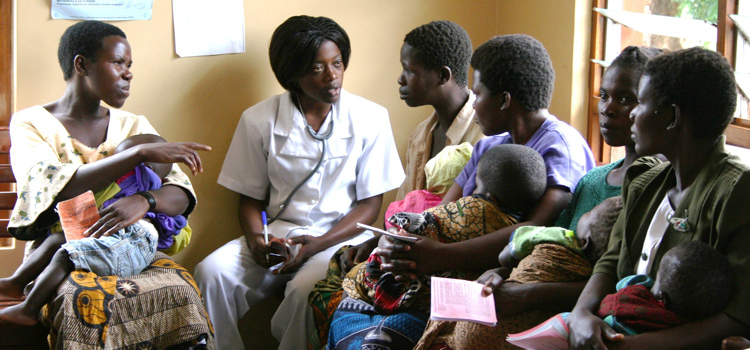Only 3 in 10 married women make informed reproductive health decisions – NDHS
The 2024 Nigeria Demographic and Health Survey (NDHS) has revealed that only three in 10 married Nigerian women can make informed decisions about their sexual and reproductive health.
According to the newly released data, just 29 per cent of currently married women aged 15 to 49 report having a say on all three key aspects of reproductive health: sexual relations, contraceptive use, and their own healthcare.
This indicator, recognised globally as Sustainable Development Goal (SDG) 5.6.1, tracks the proportion of women with autonomy over these critical aspects of their wellbeing. It serves as a key benchmark for assessing reproductive rights and gender equality.
Education and wealth as drivers of autonomy
The NDHS highlights education and household wealth as major determinants of women’s decision-making power.
The report shows that only nine per cent of women with no formal education can make informed choices on all three indicators, compared with 58 per cent of those with more than secondary education.
It also notes that economic inequality plays a role. Just nine per cent of women in the lowest wealth quintile report full reproductive health autonomy, compared with 58 per cent among the wealthiest households.
The report suggests that poverty and lack of education remain the most significant barriers to women’s empowerment in reproductive health, regardless of age or location.
Regional, age inequalities
Across regions, women in the South-south zone show the highest level of autonomy at 72.7 per cent, followed by the South-west (60.7 per cent) and South-east (56.5 per cent).
By contrast, only 6.7 per cent of women in the North-west and 15.3 per cent in the North-east report having decision-making power on all three indicators.
At the state level, Niger State has the lowest rate nationwide, with just 5.8 per cent of married women meeting this indicator.
Age also plays a role: among married women aged 15–19, only 8.6 per cent can make all three informed decisions, compared to 17.4 per cent among those aged 20 to 24, showing that young and newly married women remain more vulnerable.
Low uptake of services
The report also highlights gaps in family planning access and use. It shows that the contraceptive prevalence rate (CPR) stands at 20 per cent among married women and 50 per cent among sexually active unmarried women.
Among currently married women, the most commonly used methods are implants (six per cent) and injectables (four per cent), while male condoms (26 per cent) and withdrawal (nine per cent) dominate among sexually active unmarried women.
The survey further reveals an unmet need for family planning among 21 per cent of married women and 36 per cent of sexually active unmarried women, highlighting the persistent weaknesses in service delivery.
Expert insight
Lewis Aituma, a family planning advocate and Fellow of the West African College of Surgeons, Faculty of Obstetrics and Gynaecology, said the NDHS finding reflects “a gross inadequacy in the uptake of reproductive health services among women.”
The medical practitioner also identified sociocultural beliefs, myths about contraceptive safety, and women’s limited autonomy as key barriers to progress.
“In many African settings, women still depend on their husbands’ approval to use family planning, which undermines their right to make independent reproductive choices,” Mr Aituma said.
He added that empowering women, improving awareness, and ensuring access to affordable contraceptive services are vital to reducing maternal deaths and improving public health outcomes.
He said: “A way to enhance the uptake of this vital reproductive health service will be to enhance awareness among women, empower women, create access to contraceptive services at affordable prices, enact laws that seek to control population explosion, enhance the rights of women to seek reproductive health services of their choice, training and retraining of health personnel to offer adequate and comprehensive reproductive health services to women at clinical contacts.”
READ ALSO: Embrace vasectomy, other safe family planning methods, experts urge Nigerian men
Funding challenges threaten progress
Nigeria’s family planning efforts now face uncertainty due to the decline in both government and donor funding.
A PREMIUM TIMES analysis of the 2025 budget shows that the federal government slashed family planning funding by 97 per cent, allocating N66.39 million compared to N2.2 billion in 2024.
The cut coincides with reduced international aid, including funding withdrawals from the US Agency for International Development (USAID), which has long supported Nigeria’s contraceptive supply chain.
Experts have warned that these reductions could reverse progress made in reproductive health, leading to more unintended pregnancies, higher maternal deaths, and even the collapse of family planning programmes if not addressed.

